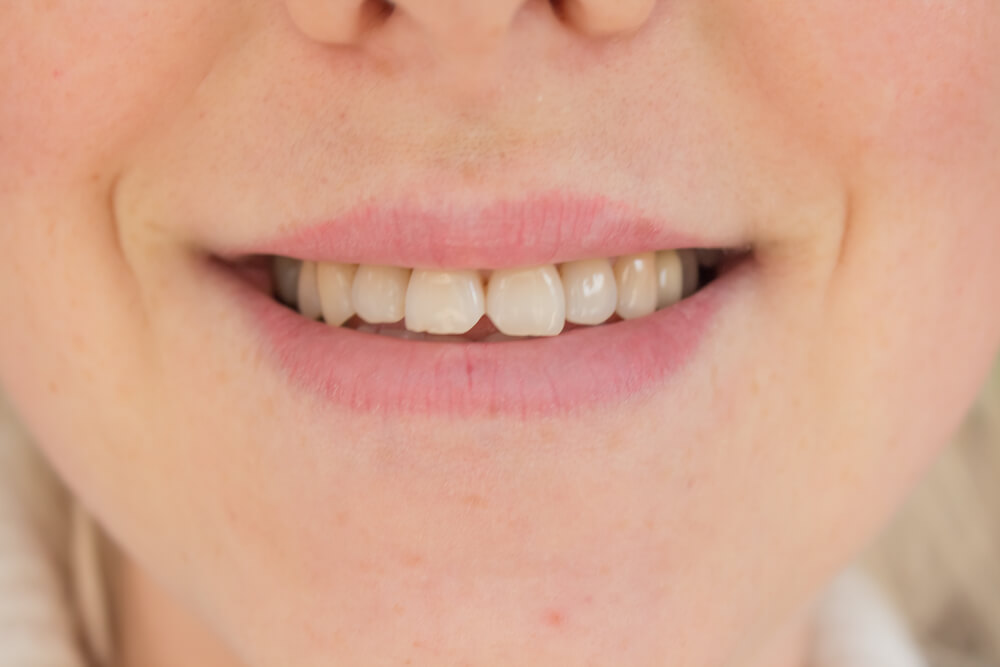What Happens To a Chipped Tooth?
Once a tooth has chipped, it is important to determine the severity of the chip. If it is small, you might not experience any pain, but a larger chip can expose the nerves inside the tooth. Because of this, with a larger chip, one would likely experience increased sensitivity when chewing or exposing the tooth to something very hot or cold. Additional complications include irritating your tongue or cheek with the chipped tooth, tooth infections, tooth decay, and worsened chipping. A chipped tooth has jagged edges that can cut your tongue, cheek, or gums. A severe chip might expose the pulp of the tooth. Exposure like this can lead to infections and typically causes extreme sensitivity. Once the enamel is damaged, it is more susceptible to chipping, so leaving a chipped tooth unattended can lead to more breakage.
Risk Factors
Many factors impact the chance of chipping a tooth. Teeth with weaker enamel are far more prone to damage than healthy teeth. Here are some things that might weaken enamel and make you more susceptible to chipping a tooth:
- Tooth Decay & Cavities
- Bacteria produced by sugars
- Conditions that bring stomach acid to the mouth like acid reflux & heartburn
- Eating acidic foods
- Grinding your teeth
- Excessive alcohol use
- Frequent vomiting
- Deterioration over time. A study showed that chipping teeth is much more common in people over 50.
Treating a Chipped Tooth
The process of treating a chipped tooth varies depending on the severity of the chip. A small chip can usually be treated with non-intrusive methods like smoothing the tooth out again. A more significant break could require bonding a hardened composite to the tooth to restore its shape. In some cases, a dentist can even reassemble the tooth by attaching the piece that chipped off back in its original space. Other options for replacing or repairing the chipped tooth include porcelain veneers, dental crowns, and dental implants. Always consult your dentist or an oral surgeon to determine which treatment best suits your needs.
In Summary…
Getting a chipped tooth can happen to anyone, and it is a more common condition than most people are aware of. Teeth can chip for many different reasons: trauma, decay, poor oral hygiene, and even deterioration over time. Ensure that your enamel stays strong by practicing good oral hygiene and keeping your teeth healthy. It is important to determine the proper treatment for your tooth. Whether it needs a minor repair, significant repair, or replacement, treatment should be administered as soon as possible. A chipped tooth should not be left untreated at risk of infection, further damage, abrasion on the tongue, cheeks, & gums, and more. Make sure to consult a dental professional as soon as possible after chipping a tooth to get it fixed before it causes any more complications.


